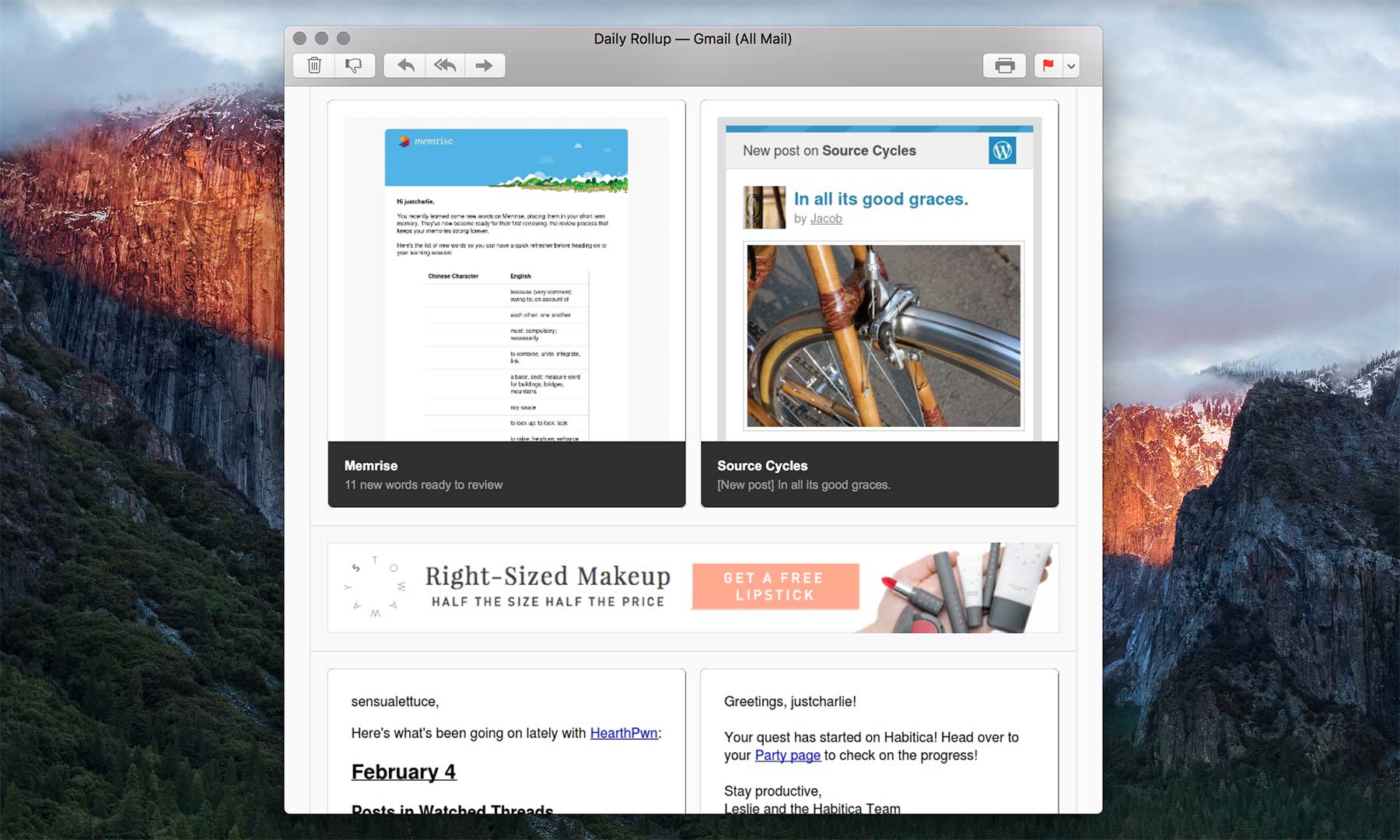Inbox Cleaning with Unroll.me
One of the tasks that I complete everyday before lunch is called inbox zero, which means leaving nothing in your inbox unread. I’ve gotten to this point only after years of leaving unread inbox items as a second list of to-do items (in addition to having an actual to-do list).
A big part of keeping a clean inbox is preventing junk from finding its way there in the first place.
If you’re a Gmail user, like most people I know, then Google is probably already doing a fantastic job keeping spam out of your inbox. But if you’re like me, your inbox is filled with email newsletter subscriptions that you’ve signed up for. I’ve been unsubscribing from these on a regular basis for months, but it wasn’t until the other day that I realized there’s a much better way: Unroll.me
Here’s how it works:
- Sign up on the site for free
- Login with your email login credentials through their website
- Unroll.me scans your inbox and tells you how many email subscriptions you have. I had 90 (after regularly unsubscribing from email newsletters over the last few months), but the friend who recommended this service to me had over 400.
Next you’re presented with a list of all your subscriptions, along with three options for each subscription:
- Add the subscription to Unroll.me
- Unsubscribe
- Allow the subscription to continue to land in your inbox as it has
I unsubscribed from everything non-essential and “rolled up” everything else, ending up with 35 subscriptions. Now I receive a daily rollup with all of the newsletter subscriptions from that day in one place. This is what the daily rollup looks like:

It’s a grid layout of all the updates from that day. Clicking on a grid takes you to the Unroll.me website where you can view the full content of each email. What I find is that I don’t click on a lot of these, though. I remain subscribed to most of these newsletters to make sure I don’t miss any important information, which is generally revealed through the thumbnail summaries.
The service is free but is monetized through banner ads which you can see above. Unfortunately (for them and for me) the ads do not seem to be targeted. They do not bother me too much though, and it’s a price I’m willing to pay for a very useful service. Check it out at the link below:


 As much as I try, I cannot do this. Fortunately, I have found something better.
As much as I try, I cannot do this. Fortunately, I have found something better.